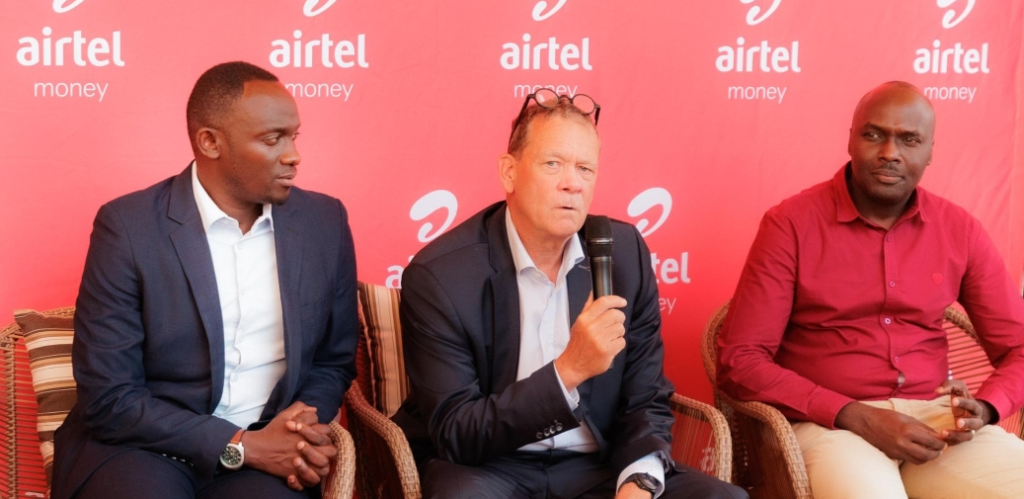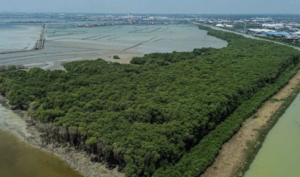Airtel Rwanda Launches Africa’s First AI-Powered Spam Alert System to Combat Mobile Fraud

Kigali, The Gulf Observer: Airtel Rwanda has introduced what it claims is Africa’s first Spam Alert Service, a groundbreaking artificial intelligence-powered tool designed to detect and flag suspicious SMS messages in real-time. The feature was officially unveiled at a press briefing held on Thursday at Zaria Court in Kigali.
The new system adds visible alerts to messages that exhibit signs of fraud, helping subscribers recognize and avoid scams before they act. Currently operational for SMS, the service is expected to expand to voice calls and social media platforms in the coming months.
“Airtel is deeply committed to stopping fraud at the source,” said Emmanuel Hamez, Managing Director of Airtel Rwanda. “That begins with robust SIM card registration. We require a national ID, a verified photograph, and a physical address for every customer. We’ve also integrated fingerprint verification through the National Identification Agency (NIDA) across our nearly 3,000 registration outlets.”
Hamez acknowledged the increasing sophistication of fraud tactics, which often exploit emotional vulnerabilities. “Many Rwandans — myself included — have received messages claiming to be from a relative in urgent need of money. It’s not about being naïve; anyone can be caught off guard.”
Unlike traditional spam filters, Airtel’s AI system does not block messages outright. Instead, it uses advanced pattern recognition to detect high-risk phrases and suspicious behavior, flagging them with a cautionary label. This approach avoids overblocking legitimate messages while urging users to think twice before taking action.
The system was developed in partnership with the Rwanda Investigation Bureau (RIB) and the National Cyber Security Authority (NCSA). It has been operating silently in the background for the past two weeks, gathering data and refining its detection algorithms.
RIB’s Division Manager for Cybercrime, Akilimali Shema, emphasized the need to stay ahead of evolving threats. “We’ve seen cases where scammers use deepfake audio to impersonate family members. The voices are identical — same tone, same accent. That’s why AI is no longer optional; it’s essential.”
Shema had a direct message for fraudsters: “Cease operations. Find a legitimate profession. With our inter-agency collaboration, you will be pursued and prosecuted to the fullest extent of the law.”
During the Q&A session, concerns were raised about scammers migrating from SMS to other channels. Airtel’s IT Director, Mark Muyenzi, assured the public that the rollout plan includes voice and social platforms. “We started with SMS because it serves both smartphones and basic phones. Voice and social media protections are next.”
He also noted the rise of fraudsters using AI tools of their own. “This is an arms race. The bad actors are evolving, and so are we. Our parameters are continuously updated to adapt to new fraud tactics.”
In a broader update, Hamez announced significant upgrades to Airtel’s network, particularly in Kigali, where 4G speeds have reached up to 100 Mbps. “By the end of this month, nationwide improvements will bring even more customers into the high-speed fold,” he said. “We can now confidently say Airtel has the best network in Kigali.”
Although the day’s focus was digital security, Hamez used the platform to share Airtel’s larger vision. “We’re no longer just connecting people — we’re connecting systems. The future lies in machine-to-machine communication, and our infrastructure is being built with that future in mind.”
Importantly, the AI-based Spam Alert Service requires no app downloads or customer activation. It is embedded directly into Airtel’s network, automatically protecting all users. From fake promotions and impersonation attempts to emotionally manipulative scams, the system serves as a real-time digital safeguard against growing cyber threats.
With this innovation, Airtel Rwanda positions itself not only as a telecom provider, but as a key player in Africa’s digital defense strategy — blending technology, collaboration, and proactive leadership to secure the mobile experience.


